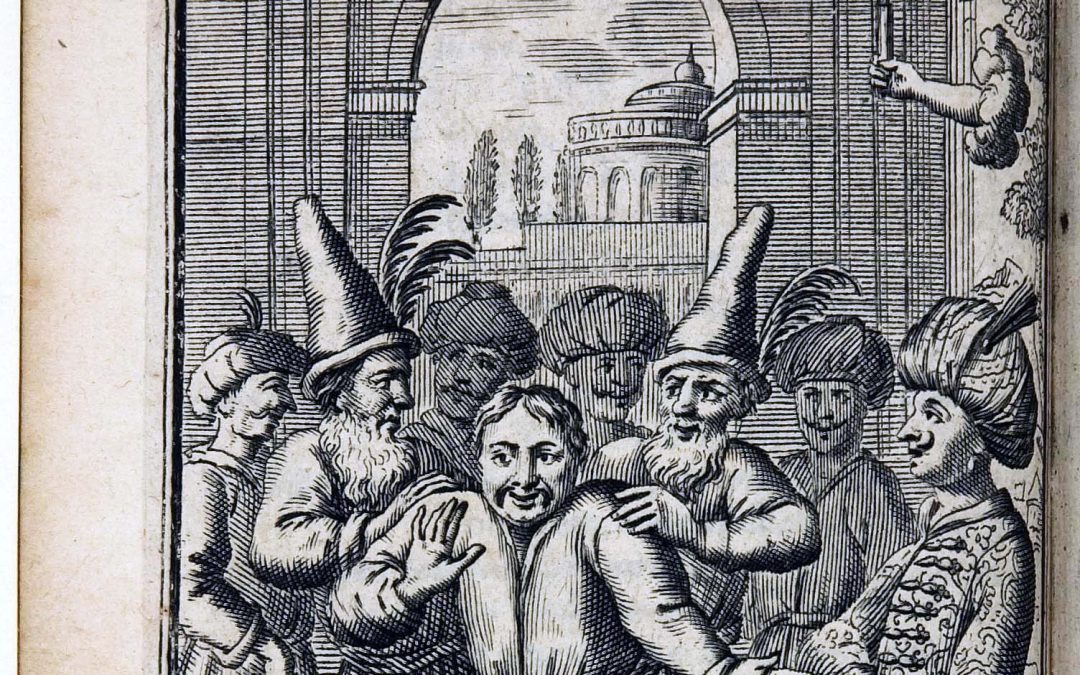Lully was France’s most significant composer of the 17th century. Born in Florence as “Giovanni Battista Lulli,” he was brought to France as a teenager to help a noblewoman improve her Italian. He quickly became proficient in music and dance.
He captured the fancy of the young Louis XIV, with whom he became a ballet partner at the age of 20. Louis soon selected him as his own instrumental composer, and eventually appointed Lully as the chief composer and impresario of the realm.
Lully began many of the conventions of the French Baroque, including the characteristic “French” overture used by later baroque composers such as Bach, Handel and Telemann. He collaborated with noted French playwrights to compose theatrical entertainments for the king. Among these works was Molière’s “Le Bourgeois Gentilhomme” (“The Would-Be Gentleman”), a “comedy-ballet” which was first performed at Louis’ command in 1670. The plot details the misguided efforts of Monsieur Jourdain, a middle-class merchant, to raise himself to the nobility. Among other antics, he hires masters of music, dance, fencing and philosophy to tutor him in their arts; is fitted with ridiculous-looking clothes (which he thinks are the newest style); and denies permission to his daughter to marry her middle-class suitor. To trick Jourdain into giving permission, the suitor disguises himself as the son of the Grand Turk. A farcical ceremony is held to raise Jourdain to the imaginary rank of “Mamamouchi,” after which Jourdain consents to the marriage!
Lully’s music is an integral part of the play. The selections we’re performing include the Overture; a suite of dances performed by the dancing-master’s students; ceremonial music for dressing Jourdain in his new clothes, and the joy of the tailor’s assistants after Jourdain generously tips them; music for the “Turkish” ceremony; and two sets of dances (Spanish and Italian) from the “Ballet of the Nations” which ends the comedy-ballet.
Suite from Le Bourgeois Gentilhomme
Composed in 1670
By Jean-Baptiste Lully






